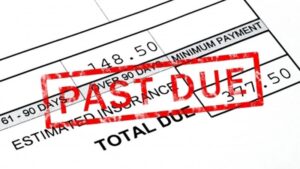Section 127 of the Insolvency Act: Stop Spending If You Receive a Winding Up Petition
If you’re a business owner and expecting difficult financial times ahead, now’s the time to educate yourself on insolvency legislation to ensure you don’t become the subject of litigation.
A record number of winding up petitions will be served on ailing businesses in the coming year, but most of their recipients – company directors – are completely unaware of Section 127 of the Insolvency Act.
According to this piece of legislation, if a company has been served with a winding up petition they must not dispose or transfer money; or use any of the company’s assets without order of the court.
Most business owners continue to trade as normal after being served with a winding up petition and this is where many of them get caught out.
Although they may have every intention of paying the debt, some business owners are completely unaware they’re trading illegally.
Once a winding up petition has been served, you should not write cheques or make any payments from the company’s bank account. If you do, you’ll be depleting the company’s assets, which you’re not allowed to do.
If the company is wound up, any payments made after the petition was served can be demanded back by a liquidator.
Moreover, if the liquidator is unable to retrieve money from the trader, they can go after the director(s) who asked for those payments to be made.
There are numerous cases of company directors who were found to be trading irresponsibly and, as a result, forced to pay back a lot of money to the company’s liquidator.
Just because you are being wound up today, that may not be the end of it. Legislation can still follow.
It’s important to seek advice early to prevent any kind of personal implications of company insolvency, as well as make use of the resources of the company to pay for the expenses of shutting down (if that be the case).
There is so much regulation to keep up with (such as the Insolvency Act, Enterprise Act, Health and Safety and Employment Legislations) which is frequently amended, it’s virtually impossible to keep up with them all.
That’s where Insolvency and Law come in. We’re experts in business rescue, and it’s our job to ensure that companies trade legally in their best interest.
Contact us now to find out more about Section 127.
Debtor Alert: Theodore Global Ltd
Theodore Global Ltd: A Company That Fails to Pay Its Staff and Trades While Insolvent If you’re thinking about working with, or for Theodore Global…
Read MoreIrene MacKenzie- The Gatekeeper of Silence
Irene MacKenzie and the Web Around William Jackson In the shadows of the alternative investment world, where buzzwords are abundant but redemptions are not, one…
Read MoreBilly Jackson Update Part 2: Companies of Interest
In our last blog on Billy Jackson, we exposed the web of enablers supporting his business operations. In this follow-up, we turn the spotlight on…
Read MoreThe Grim Truth for Loan Note Holders -79th Luxury Living Six Ltd (LL6)
No assets or safeguards. No clear path to recovery. If you’re one of the many investors who entrusted your money to The 79th Group’s loan…
Read More




